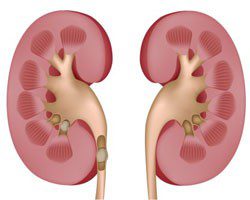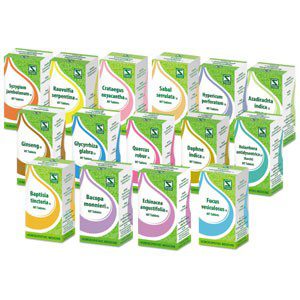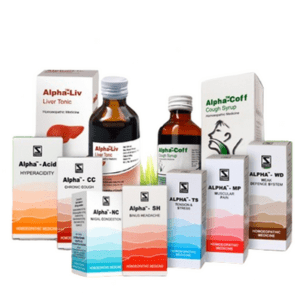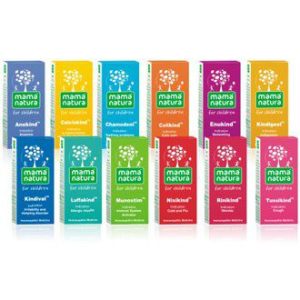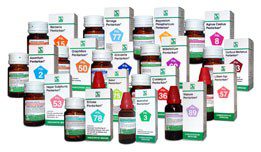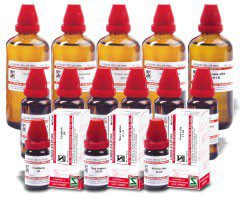Doctors Zone
Journal (JEBH)
Alpha™- Liv Drops
Alpha – Liv Drops Due to high demand from the market, for a formulation in drops for the liver, apart from the syrup already available in the market, Schwabe India developed this product. Introduction The liver plays a key role in metabolism. It has anabolic and catabolic, exocrine and endocrine functions. The liver is a blood reservoir, filter and store of different substances (e.g. glycogen, vitamins). It is the site of serum protein (e.g. albumin, prothrombin, fibrinogen) and enzyme synthesis. Metabolic processes (e.g. bilirubin, hormone, carbohydrate and lipid turnover) and the removal of toxic products are important liver functions. 1 Hepatotoxins (e.g. alcohol, tetracycline, acetaminophen, fungal toxins, and anabolic steroids) can cause specific damage to liver cells. Toxic hepatitis may be clinically silent or severe enough to lead to the rapid development of hepatic failure. Clinical features include hepatomegaly, enzyme abnormalities, fever, abdominal pain, anorexia, nausea, vomiting and weight loss. In patients with underlying cirrhosis, manifestations of portal hypertension may predominate. Aversion to fatty food, abdominal discomfort, nausea and vomiting after meals may be symptoms of 2 cholelithiasis. Jaundice results from accumulation of bilirubin. It has non-hepatic as well as hepatic causes. Hyperbilirubinaemia may be due to abnormalities in the 3 formation, transport, metabolism or excretion of bilirubin. TM Alpha -Liv Drops aids recovery and normalisation of liver functions. Severe liver disease needs specialised treatment. Indications: Slow liver functions, fatty liver, and for supportive treatment of hepatocellular jaundice and toxic liver damage.

AYUSH Department issues essential drugs list of Ayurveda, Homoeopathy medicines etc – Schwabe India
Schwabe News Volume 4 | Issue 4 & 5 | April & May 2013
AYUSH Department issues essential drugs list of Ayurveda, Siddha, Unani and Homoeopathy medicines
To overcome the problem of availability of AYUSH medicines in the public health system and facilitate the state and central authorities for smooth procurement of medicines, the department of AYUSH has issued essential drugs list (EDL) of Ayurveda, Siddha, Unani and Homoeopathy medicines. There are 277 essential medicines in EDL of Ayurveda, 257 medicines in Homoeopathy, 302 medicines in Siddha and 288 essential medicines in Unani system of medicine. The EDL will act as a guiding tool for the procurement agencies to fulfill the supply of ayurvedic medicines in dispensaries, hospitals and co-located Ayurveda facilities in PHCs, CHCs and district hospitals. It is expected to ease the accessibility of medicines in health facilities and streamline the management of medicinal supplies with meaningful use of resources in the central and state organizations.
The concept of essential medicines is forward-looking and important from the perspective of universal health coverage in meeting health needs of the people. Therefore, updating of EDL at regular intervals is essentially required to reflect various therapeutic options in accordance with the therapeutic needs of the populations due to varied prevalence of diseases and changing health seeking behaviour. Earlier, the AYUSH department had undertaken a year-long exercise to review the lists of essential Ayurveda, Siddha, Unani and Homoeopathic (ASU&H) drugs published in the year 2000 and in the process interacted with various stakeholders, including representatives from the fraternity of in-service practitioners, AYUSH Officers and procurement authorities from central and state government organisations. Comprehensive Essential ASU&H drug lists presently drawn with cross sectional consultation take in to account pharmacopoeias, formularies and regional preferences for certain medicines and offer wide choice for need-based selection of generic medicines.
AYUSH Essential Drug Lists were last formulated in the year 2000 and their updating was overdue considering the developments that took place in the last six to seven years with the mainstreaming of AYUSH under National Rural Health Mission (NRHM) and provision of central government’s support to the states for strengthening AYUSH health services. The exercise for updating the EDLs was therefore taken up with a view to formulate practitioners’ preference based lists of such Ayurveda, Siddha, Unani and Homoeopathy medicines as are documented in the authoritative books and pharmacopoeias and formularies. Relying on EDL-based procurement of medicines has the benefit of objective, transparent and need-based selection of medicines and optimal use of financial resources for health coverage. Inconsistencies in drug procurement can be easily curbed with reliance on EDLs leading to proper management of supplies and increased public confidence in health services. Schwabe India medicines are procured by Government dispensaries to make them available to the Government employees and general public.
Source: Pharmabiz.com
Recent Advancements in Basic Homeopathic Research – A Report on Two Significant Publication
In a study conducted at the Experimental Farm of the State University of Santa Catarina, Brazil, researchers investigated the impact of homeopathic treatments on piglets during the nursery phase. The study aimed to determine whether homeopathic agents could reduce fighting behavior, improve growth performance, and affect hematological, metabolic, and oxidative variables. The study included 108 weaned piglets divided into four groups: a negative control group receiving only the basal diet, and three groups receiving different homeopathic treatments at varying dosages.
Journal of Evidence Based Homeopathy Volume: 1, Issue: 1, January - June 2023
Comprehensive articles

Agrohomeopathy – A Review
Short cases

Unmasking the Intricacies: A Pyogenic Abscess Case Report

Lichen Simplex: A Singular Case Study

Ranula Unveiled: A Case Report and Management Approach

Lichen Simplex: A Singular Case Study

A Puzzling Presentation: A Case Report of Jaundice
Recent provings and updated materia medica

Acidum Formicum

Mygale

Thea Chinensis
Materia medica on phytohomeopathy

Chrysarobinum

Sanguinarinum nitricum

Thiosinaminum
Mother tincture

Asparagus Officinalis

Ginkgo Biloba

Rosmarinus Officinalis
Product watch

Alpha™- Liv Drops

Good Morning™ Constipation Drops

Zauber™ Hair Drops
Research News











